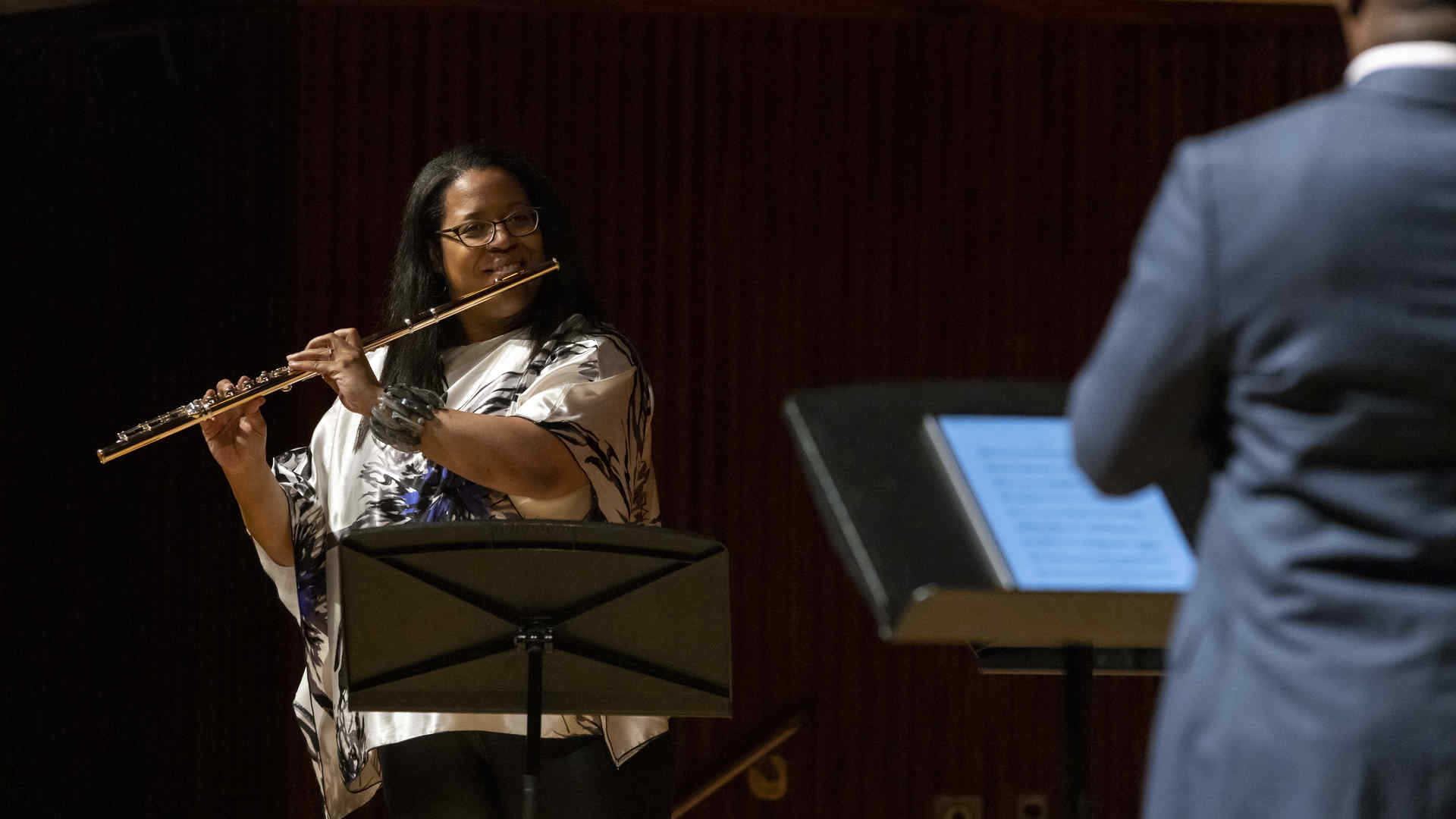
Prep Division Thrives
By Susan Jackson
Acclaimed flutist and composer Valerie Coleman is in the midst of a yearlong Preparatory Division residency that culminates with the MAP premiere of a commission Coleman is working on with the students. Coleman was interviewed for a video about the residency a few hours before the Pre-College Orchestra performed her Umoja: Anthem of Unity. It’s based on an earlier piece that she expanded for the Philadelphia Orchestra, which premiered it in 2019—it was the first classical work composed by a living woman of color that the orchestra had ever performed. The title of the work comes from the Swahili word for unity, Coleman explained. “When I heard the Pre-College Orchestra play it, my heart was so warmed because they really did represent this idea of unity—all different instruments playing together for this common element of peace and harmony.”
While her Prep Division residency began in the fall, Coleman’s ties with Juilliard go back much further—she served on the MAP faculty from 2000 to 2005. “The fact that Juilliard has created these avenues of connecting with young minds—and particularly young minds of color—has been such a powerful thing,” she said. “I’m so glad to have been a part of it, early on as a teacher for MAP and now as an artist in residence.”
On that particular day, Coleman described arriving at a MAP Wind Ensemble rehearsal of a “really stunning chorale.” Afterward, she talked with the students about the motifs and how they could connect them with their own lives, “and then we talked about how we could take those individual moments and put them right back into the music so that the audience could have that recollection as well,” she said.
Coleman believes that young people are “at the heart of the potential of the future of music” and that she has to “contribute to that as much as I can.” She said, “It’s a passion of mine to mentor [particularly because there are] so many young minds of color who will face challenges in the world. This is a crucial moment for them to not only get a world-class education but also be reaffirmed in their ability to believe in themselves.”
Coleman’s residency, which also includes teachings, master classes, roundtables, and rehearsals, culminates in a MAP Wind Ensemble commission that will be premiered at MAP’s 30th anniversary celebration concert, on April 30. “I don’t know yet what’s going to happen with the work musically because I’m still getting to know the students and their energy,” she said. Her plan is to “tailor it to their level, their strengths, their interests.” An aspect of the commission she’s especially excited about is that “the students will be responsible for the name of the work. We’re waiting on the title until the piece is written, because I want to make sure they can really see what it means to them and what the different sonorities spark in their imagination. Ten or 20 years from now, they’ll look back at this time and know that they were a part of a creation of a work that is out in the world, living and striving and thriving.”
One of Coleman’s goals for the residency is that the students will “walk away with a sense of empowerment that allows them to give themselves permission to follow their own unique path,” she said. “It’s crucial for the evolution of music for students to let their own voices be heard.” Clearly they’re already well on their way.
This project is supported in part by an award from the National Endowment for the Arts. Additional support is provided by the I.A. O’Shaughnessy Foundation. Coleman's commission for the MAP Wind Ensemble is made possible through the American Composers Forum's BandQuest program.